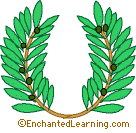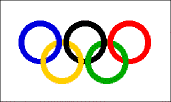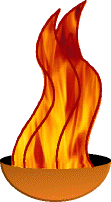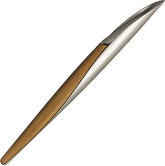Current questions.................
Which nations are new to the 2014 Winter Olympics?
What tragedy happened the day of the opening ceremonies?
What is the normal average temperatire for Vancouver? What has it been this winter?
Why was the men's downhill postponed Saturday, Feb 13th?
What did Japan's snowboarder, Kazuhiro Kokubo, apologize for?
How many athletes did Mexico send?
The delegation from Bermuda paraded into the opening ceremonies wearing.......what?
http://www.olympic.org/en/content/Olympic-Games/
EnchantedLearning.com
NBC Learn
http://www.teachersfirst.com/spectopics/olympics.cfm
Sports of the 2014 Winter Olympics
http://education.nationalgeographic.com/education/media/sports-2014-winter-olympics/?ar_a=1
Scavenger Hunt
WinterOlympics OnlineScavengerHunt.pdf
The Ancient Olympics:
The ancient Greeks dedicated the Olympic Games to the god Zeus. The original games were held on the plain of Olympia in Peloponnesos, Greece.
 The Greeks held the first Olympic games in the year 776 BC (over 2700 years ago), and had only one event, a sprint (a short run that was called the "stade"). The race was run by men who competed in the nude. A wreath of olive branches was placed on the winner's head (in Greek, this is called a kotinos). The olive tree was the sacred tree of Athens, Greece.
The Greeks held the first Olympic games in the year 776 BC (over 2700 years ago), and had only one event, a sprint (a short run that was called the "stade"). The race was run by men who competed in the nude. A wreath of olive branches was placed on the winner's head (in Greek, this is called a kotinos). The olive tree was the sacred tree of Athens, Greece.
Women were neither allowed to compete in the games nor to watch them, because the games were dedicated to Zeus and were therefore meant for men.
The four-year period between the Olympic games was called an olympiad. Every four years, for 1,170 years, the Greeks held an Olympics, which continued to grow and change. Many other sports were added, including other races, wrestling, boxing, pentathlon (five events, including the long jump, javelin throw, discus throw, foot race, and wrestling), and equestrian events (events with horses and people, like chariot races and horse races) The Olympic games were banned by the Byzantine Emperor Theodosius II in the year AD 394.
The Modern Olympic Games:
Over a fifteen hundred years later, Pierre de Frédy, Baron de Coubertin (1863-1937) (a French educator and sportsman) revived the Olympic Games. An all-male Olympic games were held in 1896, in Athens, Greece. The first winter Olympics were held in 1924, in Chamonix, France.
The Flag of the Olympic Games:
 The flag of the Olympic Games has five interlocking rings (blue, yellow, black, green, and red) on a white ground. The rings represent the five parts of the world that were joined together in the Olympic movement: Africa, the Americas, Asia, Australia and Europe. Baron de Coubertin designed the flag of the Olympics in 1913-1914.
The flag of the Olympic Games has five interlocking rings (blue, yellow, black, green, and red) on a white ground. The rings represent the five parts of the world that were joined together in the Olympic movement: Africa, the Americas, Asia, Australia and Europe. Baron de Coubertin designed the flag of the Olympics in 1913-1914.
The Olympic flag was first used in the 1920 Olympic Games in Antwerp, Belgium. The Olympic flag is paraded during the opening ceremony of each Olympic Games. At the end of an Olympics, the mayor of the host-city presents the flag to the mayor of the next host-city. The flag will remain in the town hall of the next host-city until the next Olympic Games, four years later.
History of the Olympic Flame
 The tradition of the Olympic flame began during the ancient Olympic Games, over 2700 years ago in Greece. A flame was lit for each Olympics, every four years, and it burned throughout the games. The flame symbolized the death and rebirth of Greek heroes. There was no torch relay in the ancient Olympics. The first torch relay took place at the 1936 games in Berlin, Germany.
The tradition of the Olympic flame began during the ancient Olympic Games, over 2700 years ago in Greece. A flame was lit for each Olympics, every four years, and it burned throughout the games. The flame symbolized the death and rebirth of Greek heroes. There was no torch relay in the ancient Olympics. The first torch relay took place at the 1936 games in Berlin, Germany.
The Torches of the Olympics:
 For each Olympics, a new flame is started in the ancient Olympic stadium in Olympia, Elis, Greece, using a parabolic mirror to focus the rays of the Sun. This flame begins its Olympic Torch Relay by touring Greece. The flame is normally taken to the country where the games will be held (usually by airplane). Following that, the flame is then carried around the country where the games are to be held, using a series of torches carried by people running, walking, riding horses and camels, scuba diving, and using other means of human conveyance. The last runner uses a torch to light the large Olympic torch which burns throughout the games. The flame is extinguished during the closing ceremony. A new Olympic torch is designed for each of the games.
For each Olympics, a new flame is started in the ancient Olympic stadium in Olympia, Elis, Greece, using a parabolic mirror to focus the rays of the Sun. This flame begins its Olympic Torch Relay by touring Greece. The flame is normally taken to the country where the games will be held (usually by airplane). Following that, the flame is then carried around the country where the games are to be held, using a series of torches carried by people running, walking, riding horses and camels, scuba diving, and using other means of human conveyance. The last runner uses a torch to light the large Olympic torch which burns throughout the games. The flame is extinguished during the closing ceremony. A new Olympic torch is designed for each of the games.
The Olympic Motto:
The Olympic motto is, "Citius, Altius, Fortius," which means "Swifter, Higher, Stronger."
Olympic Events:
The events in the Summer Olympics include: archery, badminton, baseball, basketball, boxing, canoeing, cycling, diving, equestrian, fencing, football (soccer), gymnastics, handball, hockey, judo, kayaking, marathon, pentathlon, ping pong, rowing, sailing, shooting, swimming, taekwando, tennis, track and field (many running, jumping, and throwing events), triathlon, volleyball, water polo, weightlifting, wrestling (freestyle and Greco-Roman).
The events in the Winter Olympics include: ice hockey, figure skating, speed skating, snowboarding, luge, bobsleigh, skeleton (a type of sledding), curling, cross-country skiing, freestyle skiing, slalom, downhill (Alpine) skiing, ski jumping, Nordic combined (skiing plus ski jumping), and biathlon (skiing and shooting).
Olympic Medals:
 At the Ancient Olympics, a wreath of olive branches was placed on the winner's head (in Greek, this is called a kotinos).
At the Ancient Olympics, a wreath of olive branches was placed on the winner's head (in Greek, this is called a kotinos).
At the modern Olympics, each first-place winner receives a gold medal, each second-place winner receives a silver medal, and each third-place winner receives a bronze medal (the bronze medal was introduced in 1904). Different medals are designed for each new Olympics. Certificates called victory diplomas are also given to many top winners in each sport.
Sites of the Modern-Day Olympics:
| Locations of the Modern-Day Summer Olympics | Locations of the Modern-Day Winter Olympics |
|---|
1896 - Athens, Greece
1900 - Paris, France
1904 - St. Louis, Missouri, USA
1906 - Athens, Greece
1908 - London, England
1912 - Stockholm, Sweden
1916 - Canceled
1920 - Antwerp, Belgium
1924 - Paris, France
1928 - Amsterdam, Holland
1932 - Los Angeles, California, USA
1936 - Berlin, Germany
1940 - Canceled
1944 - Canceled
1948 - London, England
1952 - Helsinki, Finland
1956 - Melbourne, Australia
1960 - Rome, Italy
1964 - Tokyo, Japan
1968 - Mexico City, Mexico
1972 - Munich, Germany
1976 - Montreal, Quebec, Canada
1980 - Moscow, USSR
1984 - Los Angeles, California, USA
1988 - Seoul, South Korea
1992 - Barcelona, Spain
1996 - Atlanta, Georgia, USA
2000 - Sydney, Australia
2004 - Athens, Greece
2008 - Beijing, China
2012 - London, United Kingdom
2016 - Rio de Janeiro, Brazil
|
1924 - Chamonix, France
1928 - St. Moritz, Switzerland
1932 - Lake Placid, New York, USA
1936 - Garmisch-Partenkirchen, Germany
1940 - Canceled
1944 - Canceled
1948 - St. Moritz, Switzerland
1952 - Oslo, Norway
1956 - Cortina d'Ampezzo, Italy
1960 - Squaw Valley, California, USA
1964 - Innsbruck, Austria
1968 - Grenoble, France
1972 - Sapporo, Japan
1976 - Innsbruck, Austria
1980 - Lake Placid, New York, USA
1984 - Sarajevo, Yugoslavia
1988 - Calgary, Alberta, Canada
1992 - Albertville, France
1994 - Lillehammer, Norway
1998 - Nagano, Japan
2002 - Salt Lake City, Utah, USA
2006 - Turin, Italy
2010 - Vancouver, Canada
2014 - Sochi, Russia |
Members of the Perseus Project created this exhibit on the ancient Olympics in 1996, as a tribute to the Centennial Olympic Games held in Atlanta, Georgia. In this exhibit, you can compare ancient and modern Olympic sports, tour the site of Olympia as it looks today, learn about the context of the Games and the Olympic spirit, or read about the Olympic athletes who were famous in ancient times.
The Perseus Digital Library Project is centered in the Classics Department at Tufts University.
Ancient and Modern Olympic Sports
A Tour of Ancient Olympia
The Context of the Games and the Olympic Spirit
Athletes' Stories
Frequently Asked Questions About the Ancient Olympics
From JigZone
Comments (0)
You don't have permission to comment on this page.